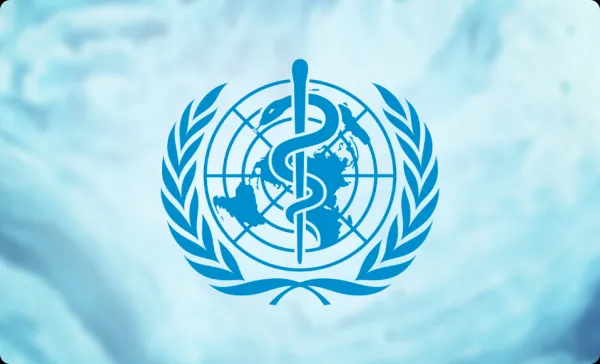By: Ankita Kulkarni
June 15 2023

The WHO has said it will not access or hold anyone's personal data or medical records. It will also not be involved in the verification process.
Context
The World Health Organization (WHO) recently partnered with the European Union (EU) to develop a digital solution to support the verification of health documents between participating countries. As part of the new initiative—Global Digital Health Certification Network— member states will issue health certificates and personal health records to their citizens, enabling the cross-border exchange of health information among members to reduce possible health threats.
In light of this development, a video uploaded by June Slater, who has a following of more than 67,000 users, has started doing the rounds on Facebook. Several claims by Slater—who describes herself as “Chief Gammon” and has made several appearances on GB News— have been debunked by Logically Facts in the past. In her latest video, Slater claims that once the digital certificates are issued or get into people’s mobile phones, the WHO will access their phone data, and, therefore, medical records of the concerned individuals will be in the public domain. She further claims that these records will be used to determine or restrict people's travel on holidays. She also goes on to assert that the certificates will be interlinked to form a personalized carbon footprint tracker, and purchases made by people will be recorded to calculate their carbon footprint. She adds that the system will be used to reduce the carbon footprint by deducting penalties from people's income.
In Fact
The Global Digital Health Certification Network (GDHCN) consists of countries that voluntarily wish to join the group. The initiative, launched on June 5, is built on the EU's Digital COVID-19 certification and is being presented as its global successor.
Under the FAQ (Frequently Asked Question) section on GDHCN, the WHO clearly states that the responsibility of issuing digital health certificates lies with the participating countries. It notes, "WHO does not and will not hold, nor have access to, personally identifiable information such as names of individuals or their e-mails, or individual health records."
In another section on GDHCN, the WHO also breaks down the technical details associated with generating digital certificates. It states the network is operated by a software infrastructure allowing the member states to bilaterally verify the authenticity of health certificates. The WHO categorically states that it will only act as a "trust anchor" among its member states and will not participate in any verification processes. It also clarifies that the participating countries will voluntarily submit public keys into a directory managed by the WHO. It also reiterates that "WHO will not hold or otherwise have access to any individual data." Subsequently, it notes that GDHCN will allow health providers to easily verify health records to support continuity of care when individual moves from one country. It will also facilitate global mobility and protect citizens across the world from future health threats and pandemics.
Additionally, since the initiative is built on EU's digital COVID-19 certification, the FAQ section on the latter certificate clarifies that while verifying the authenticity, the personal data of the certificate holder will not pass through the EU gateway (which was activated to verify certificates across the union).
Furthermore, the GDHCN program will not track individual carbon footprint. No statements, press releases, or announcements made by the WHO and EU make any mention of keeping track of carbon footprint through health certification. Earlier, some social media users had also wrongly linked the GDHCN initiative to the “loss of national sovereignty”, and the claim was debunked by Logically Facts.
The claims made by Slater in the video fall in line with New World Order conspiracy theories, which falsely claim that organizations like the WHO are planning to enslave the population and establish totalitarian dystopia.
The Verdict
The WHO will not be able to access or hold any personal data from citizens' mobile phones through the new digital health certification system. The new initiative has been maliciously linked to conspiracy theories.